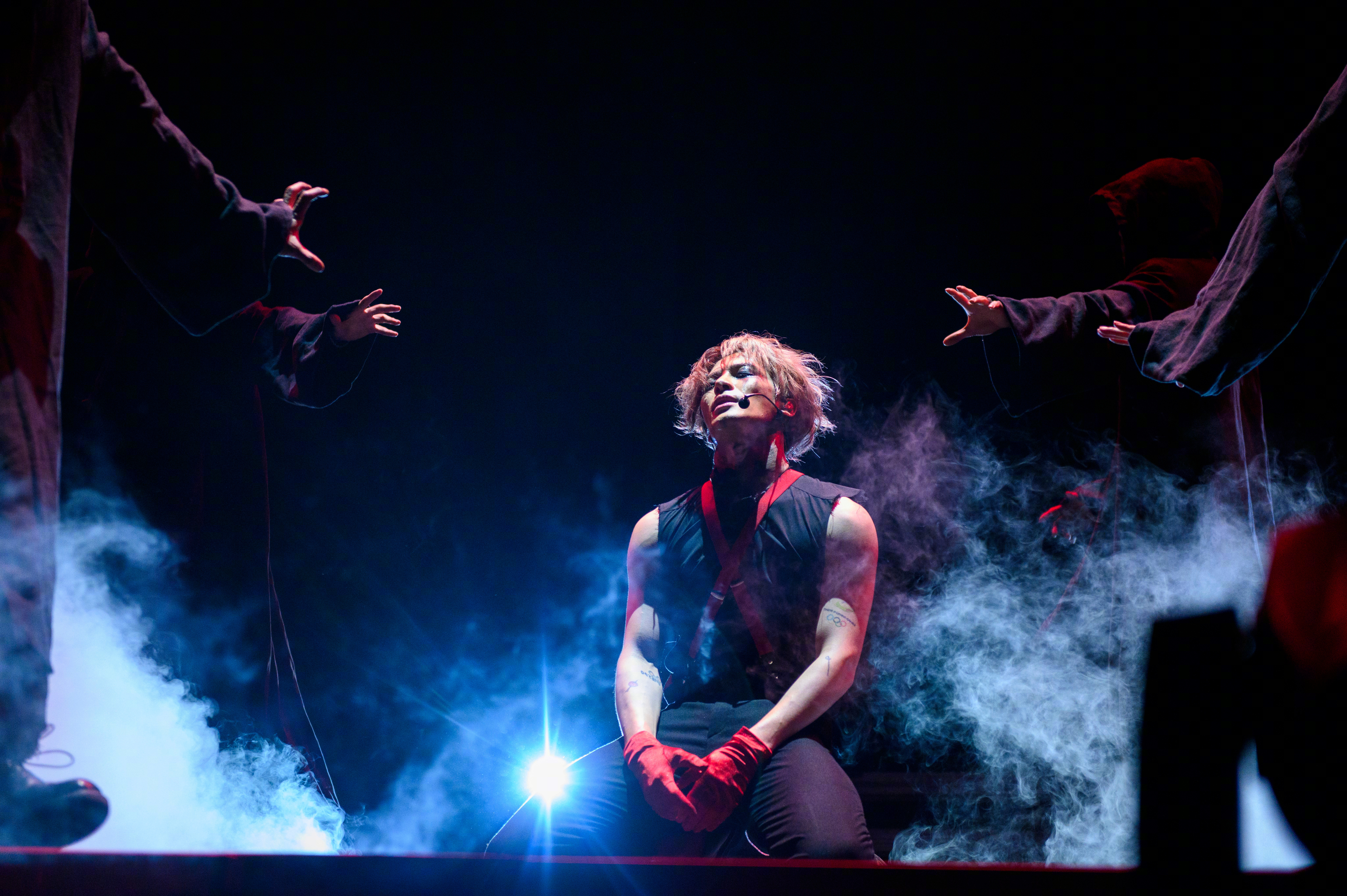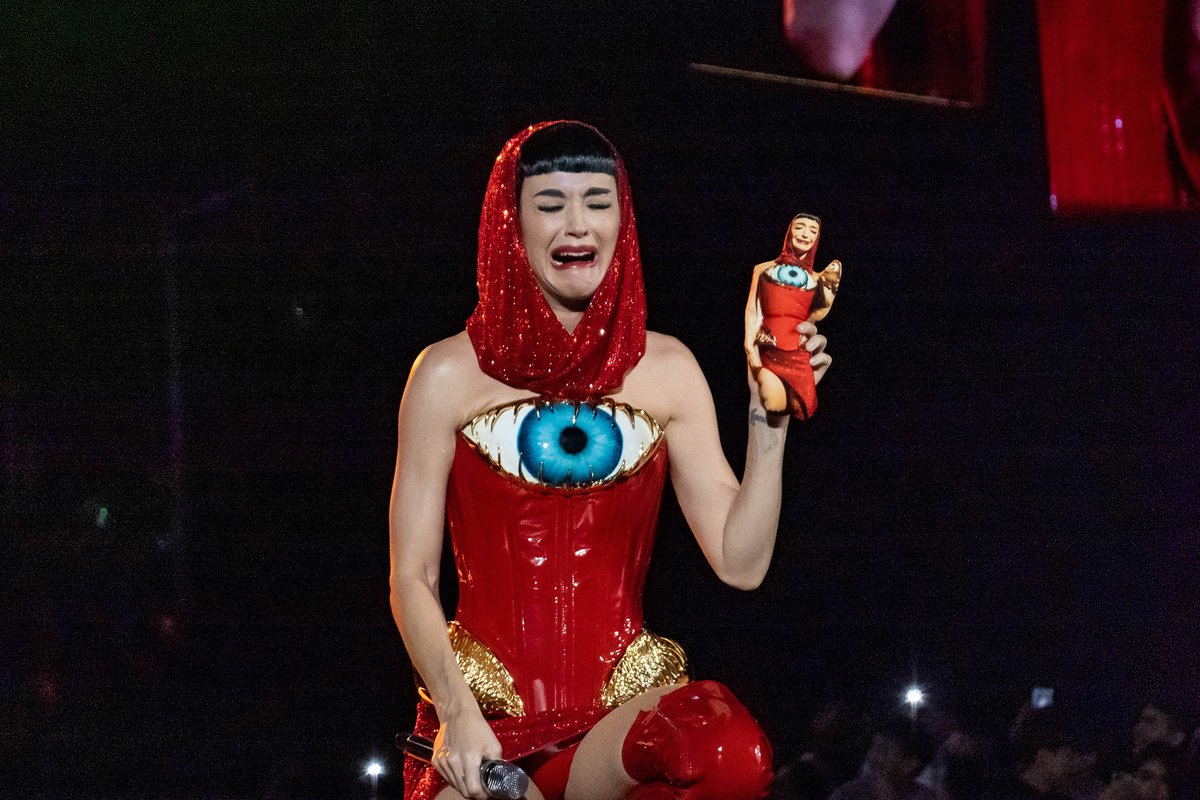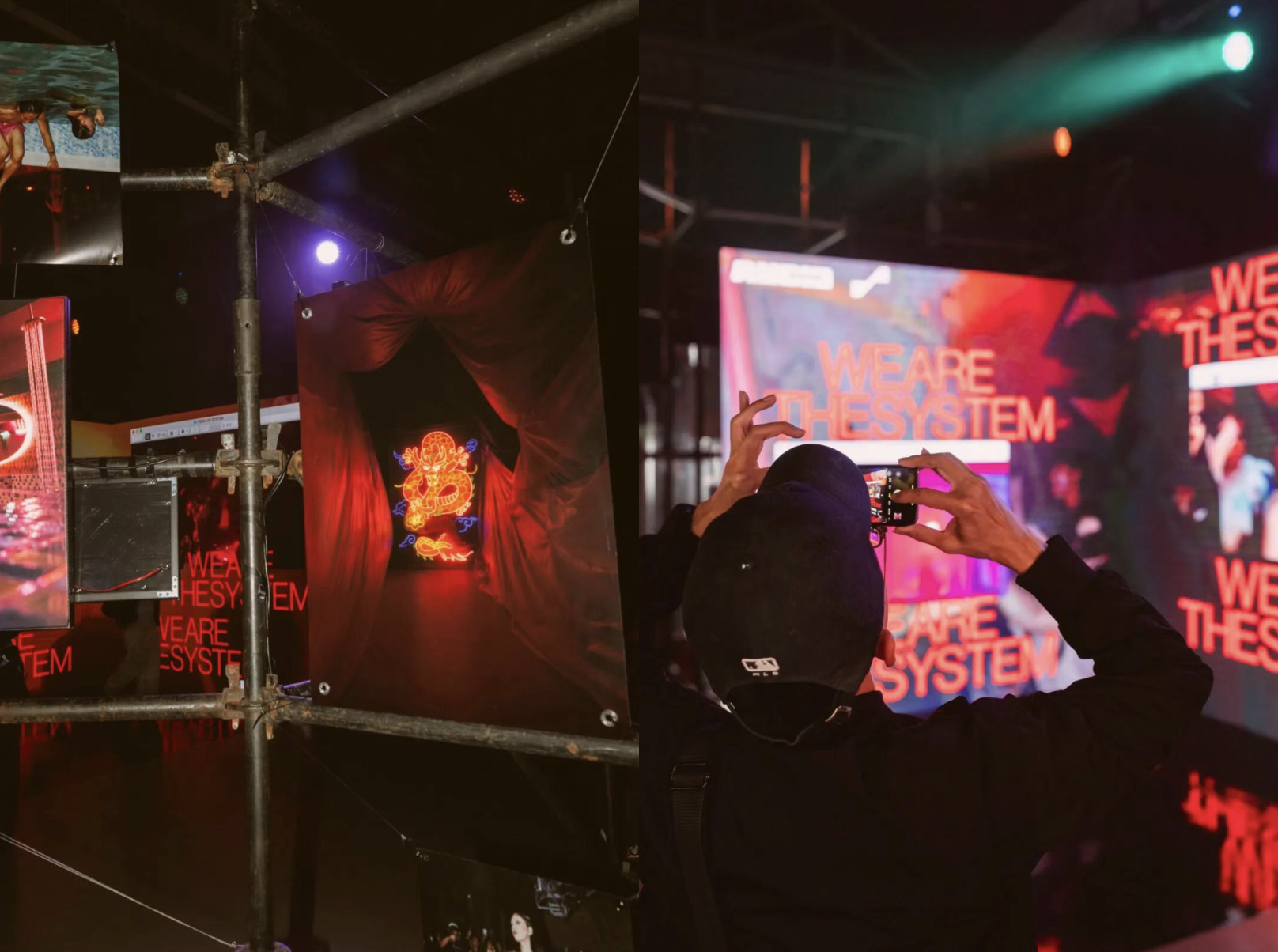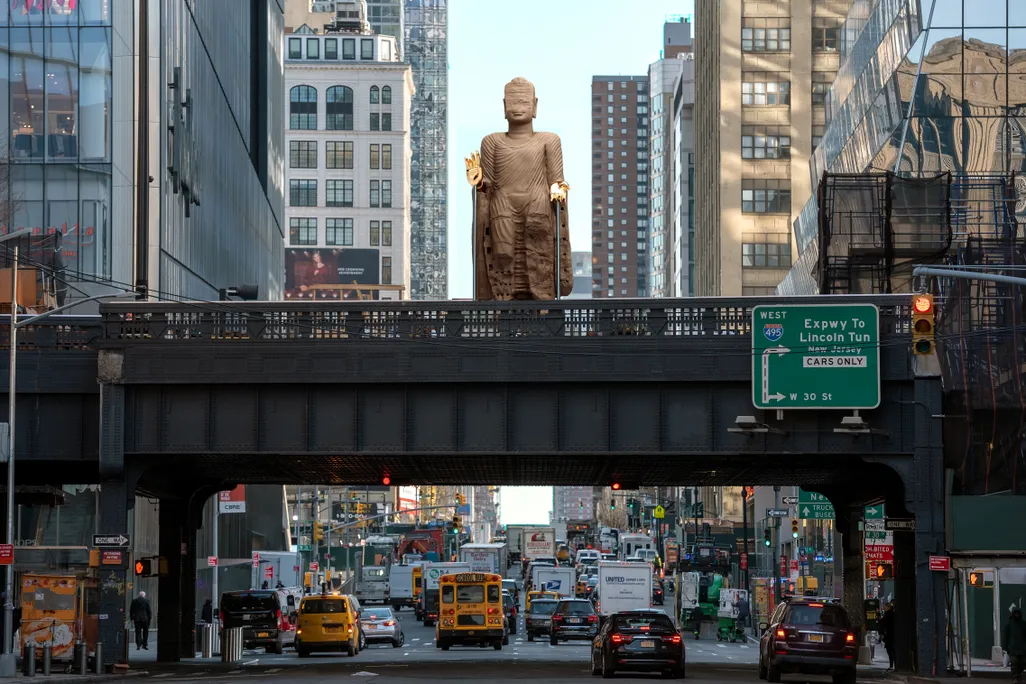Gao Jiafeng is a hard artist to classify. He plays the saxophone, yes, but he’s far from a jazz musician, and even “musician” doesn’t quite capture his vibe. His most recent output — which he describes as his “karaoke/alternative pop/comedy project” — riffs on lowbrow internet culture and the aesthetic of hanmai, a variant of online vocal performance that is searingly popular in lower-tier Chinese cities and has recently been taken to task by the government for its allegedly “vulgar” content.
Jiafeng’s approach is perhaps more knowing, better produced and less vulgar than your average hanmai performance. Here’s a sample:
Jiafeng began his artistic career as an experimental musician, performing frequently at various noise dives in Brooklyn during a several-year stint as a New Yorker, and mixing his experiences overseas in with likeminded artists back home via a short-lived cassette label, Muted Portraits. He moved to Shanghai several years ago and has since diversified his practice, exploring both the mainstream side of music production (his day job) and the further edges of Chinese internet culture (one image in his latest promo post shows him tricked out like a Kris Wu-lite, ghost riding the Mars rover).
Jiafeng is about to take his Very Internet show on the road, performing a string of dates that includes a stop in his hometown of Changsha. Ahead of that I talked to him about sourcing lyrics on Taobao, his omnivorous attitude toward genre, and why 2018 China is “such beautiful chaos, a kind of greatness though not worth bragging about.”

RADII: You’re about to start your first China tour, though you’ve played extensively both across China and internationally in the past. Why go on tour now? Where are you most excited to play and why?
Gao Jiafeng: Yes, this is actually my first time on tour for my karaoke/alternative pop/comedy project, though in the past few years I’ve complete two nation-wide tours while I involved myself more in the experimental music scene. The stuff (songs/jokes/videos) I am about to do in this tour were created after I moved back to China — they are colorful, bouncy, ironic, retro, swag, hardcore… and more importantly, they are my most recent responses to my life in 2018 China. I’m most excited to play in my hometown, Changsha, because I’ve been away from it for so long and this time I’m bringing something fresh back home.
I’ve seen you perform several times over the years, and have seen your latest work on the internet, and I think it’s pretty hard to say that you fit into any one style or genre. Even “experimental music” doesn’t seem right given that your recent tracks can sound like un-ironic and professionally produced vaporwave or hip hop as easily as they can take the form of free improv sax solos. How do you describe your own “music”? How much do other elements — video, performance art, meme design — influence or shape your creative output?
It depends. Sometimes the stuff I do feels like some personalized music anthropology study to me, sometimes it feels like I’m just having fun. I appreciate your quotation marks on the word “music”, it seems like a good term to conclude the stuff I make — they are all different types of music, and a little bit more than just music. I did manage to make these tracks all sound very typical in their respective genres. However, if you look into the lyrics, they are not meant to “fit” the music, but atypical (sometimes unsuitable) compared to the music.

Some of the lyrics are bought from [e-commerce platform] Taobao, some are original, some are found texts, and they are about social topics, nonsense, pop culture. I see genres kind of indiscriminately as music-making materials — if you can imagine a hip hop producer sitting in front of turntables sampling an old jazz vinyl then adding some beats to it, I’m pretty much doing the same thing, but “sampling” an entire genre or some trash from pop culture, then finding the best lyrics and video, and trying to find the magic balance that makes everything so powerful.
[pull_quote id=”1″]
The final products are different songs that are surrounded with talk, memes, visuals. It’s this entire producing-songwriting process that has been my favorite part, instead of becoming proficient in one or a few specific music styles. I’m actually happy to see people’s definitions and labels about me, sometimes I put a lot on myself, too. In the longer term, there might be more works in more seemingly unrelated genres, and hopefully listeners will notice what connects these dots into a bigger map, which is the little sand castle I’m trying to build.
What’s your day job? Last time I talked to you I think you were working in audio production?
Oh yeah, making music for all kinds of things in my studio. Advertisements, films, arts, etc. My day job really broadens my skill for making my own music — it teaches me different “standards” and “functions” that clients and the mass majority expect from music, things I chose to not care about when I first started my music career.
I think my favorite recent work of yours is a video that starts as a how-to guide for making a trap beat, then morphs into an absurdist diss track shot inside a convenience store and subway. What do you think about the current trend of rap/trap in China as represented on a show like Rap of China? What do you think is the cultural value of more “underground” trap rappers like Higher Brothers?
Thanks! Sometimes I still watch it myself. It’s actually a diss-song for a vlogger named 土地公张福德 who used my track without asking for the license, and who refused to either apologize or compensate me. I got so pissed and listened to a lot of hip hop. I was almost ready to make a diss track full of curse words, but I realized that pure anger seems no longer as powerful as it was in the past, and no anger will survive too long on the internet. Finally I thought that making a diss song embedded within a funny “how to” video can best fulfill my little revenge plan.
Some use hip hop to speak their minds, some use it to paint abstract scenes. But me? The only time I felt the need to make hip hop was when my rights got infringed. Hip hop is still a brand new thing to me, and it’s still happening quick. I feel like a student, enjoying it, ready to explore, sometimes very confused. I feel like a student in front of every other kind of music.
I never watched a full episode of Rap of China, but back when it was popular I did listen to more hip hop because of it. I think Higher Brothers are cool except the music video “Made in China”, stereotyping someone’s own culture is beyond my bottom line.

How does the culture of the Chinese internet shape your work? Do you take inspiration from things like zhibo, Weibo, Taobao, etc?
It’s definitely my main source of inspiration. Pulling all the copyright laws aside, Chinese people have this great talent of appropriating or re-making existing works, collaging different cultures, believe it or not… I’ve seen people do hanmai (a rural style of rap) on top of Taiwanese love song classics, lyric retailers on Taobao (I’ve purchased them, for a very low price), Window of the World, etc. To me it’s such beautiful chaos, a kind of greatness though not worth bragging about. Our culture has been hurt and this is what it is now, like a cyborg mutant.
[pull_quote id=”2″]
How do you think the internet is shaping Chinese culture or society as a whole right now? What are the most interesting or strangest trends you’ve seen, and do you try to reflect these in your work?
Both the internet and the society feel like a “perfect” free economy game in which people are allowed to cheat. You think you escape from the TV and turn to the internet for the sake of free will, having the right to choose what to watch? The first three posts in your Weibo feed are there because somebody paid for them. I’ve seen the farming industry hire a PR company, spending millions on making memes to induce people’s desire to buy peach trees. And the t-shirts on your Taobao homepage can be extracted from your WeChat conversations with your friends.

These facts were intimidating at first, but people got used to them quickly. I’m learning to play this game, not running away from it. (The first time I spent money buying ads for my music, I even felt guilty… now I’m good.) I guess only by participating in this game can I understand the system, and perhaps make use of this system more proficiently.
As someone who lived in New York for several years, and who is now based in Shanghai, how would you compare the two cities? What do you love about each? Why are you in Shanghai now instead of New York?
They are both great and expensive. I miss New York’s deli food and the over-saturated amount of hipsters in the summer in Bushwick. Shanghai is like China’s finest illusion… I’m here cuz I see so many amazing, exciting things happening in China and East Asia, and I want to be part of it again.
—
All images courtesy Gao Jiafeng; if you’re in China, catch him on tour from July 13-28
You might also like:
 MC Shitou: Icon of a Fading Internet SubcultureArticle Feb 21, 2018
MC Shitou: Icon of a Fading Internet SubcultureArticle Feb 21, 2018
 Watch: Experimental Music Performances in a Historic Shanghai CourtyardArticle Apr 21, 2018
Watch: Experimental Music Performances in a Historic Shanghai CourtyardArticle Apr 21, 2018
 Voices from Inside Shanghai’s DIY Music SceneArticle Apr 09, 2018
Voices from Inside Shanghai’s DIY Music SceneArticle Apr 09, 2018

















